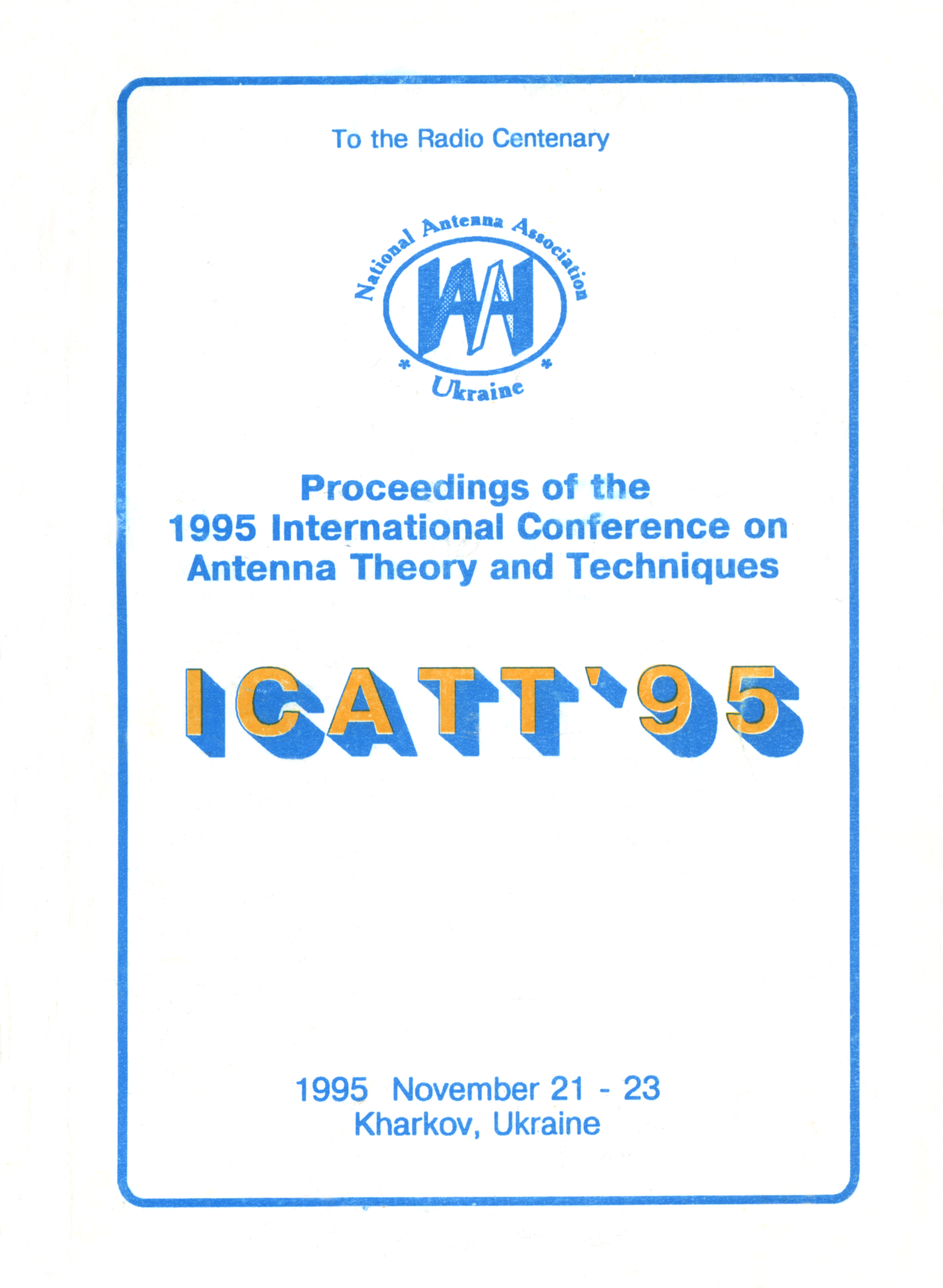A method of robust adaptive antenna array design
DOI:
https://doi.org/10.1109/ICATT.1995.1234140Abstract
An important problem in the theory of adaptive antenna arrays (AAA) is creation of robust control algorithms, i.e. the algorithms providing an accepted quality of functioning under the conditions of inaccurate a priori information about the desired signal parameters. This work suggests a variant of synthesis of robust algorithms based on the use of only interval estimations of the desired signal parameters.
To avoid uncertainty we assume that the signal carrier frequency and the structure of the antenna array are known precisely, and the direction of the signal arrival is known with an accuracy of some angular sector (*). We consider θS to be a random quantity uniformly distributed in the interval [*]. Then the average power of the output signal and desired signal itself can be represented in the form
*, (1)
where W is the vector of AAA weighting coefficients; Rxx is a correlation matrix (CM) of the input signals; A = *, RSS is the desired signal CM. Based on (1) let us formulate the problem of algorithm synthesis as
*, (2)
where α is a positive real coefficient. By using the duality principle and applying the gradient method for solving (2) we obtain
* (3)
where μk is a step constant; Pr{*} is the projector of the unit radius onto a hypersphere. It is not difficult to show that with a proper choice of μk the algorithm (3) is globally convergent and it provides acceptable quality of AAA functioning if Recondition θS * is met.

